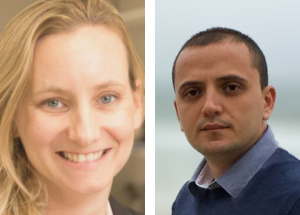The proposed project is part of an ongoing interdisciplinary collaboration between the Adler-Abramovich and
Sokol research groups at Tel-Aviv University. Prof. Lihi Adler-Abramovich is the head of the Laboratory of
Bioinspired Materials and Nanotechnology at the School of Dental Medicine, Faculty of Medicine, which focuses
on mimicking self-assembly processes that occur in nature to develop novel biomaterials for various biological
and medical applications, such as the design and synthesis of 3D hydrogel scaffolds for tissue regenaration13–15.
Dr. Maxim Sokol is the head of the Advanced Ceramics Laboratory at the Department of Materials Science and
Engineering, Faculty of Engineering, which focuses on the processing of advanced ceramics and ceramic
composite materials, including ternary carbides and nitrides (MAX phases), and their exfoliation into 2D
materials (MXenes). The lab explores novel MXene synthesis and fabrication techniques aiming at understanding
the relationship between their functional properties and functional characteristics at various length scales.16,17
In the framework of the ongoing collaboration between the groups, we could fabricate a MXene-based composite
hydrogel showing notable mechanical, electrical and self-healing properties that was utilized as a piezoresistive
sensor (see Preliminary data below). Importantly, these advances, as well as the suggested project, cannot be
achieved by either one of the partners alone and can only be accomplished through a collaborative effort.
